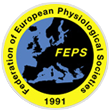 CODE OF CONDUCT
CODE OF CONDUCT
The Federation of Physiological Societies (FEPS) strongly advocates for the highest possible research integrity and for an inclusive and respectful environment. FEPS considers the open and frank discussion of such matters as the core of strong scientific and educational activity.
FEPS is an organization whose mission is:
to promote and foster the exchange and diffusion of concepts and information between physiologists and the societies of physiology in the European region.
to facilitate the dissemination of information concerning the activities of the member societies
to encourage joint meetings of two or more member societies
to facilitate the exchange of invitations between member societies to national or regional meetings
to advance knowledge in the scientific disciplines relating to physiology by supporting and providing suitable mechanisms for training programs in physiology
to advance the exchange of graduate students and scientists within Europe and on an international scale
to stimulate international scientific research projects in Europe.
Scope
This code of conduct is a set of rules that is expected to apply to all activities of the physiological societies, which are member societies of FEPS, i.e. research, scientific meetings, workshops, educational activities, and interaction with peers.
Research
Research performed by members of FEPS is expected to be of the highest standards, which includes honesty, transparency, and accountability. The FEPS member societies should establish an atmosphere where this is possible and the norm, and where ideas can be exchanged in a safe, respectful, and collegial manner.
FEPS strongly advocates that research is conducted in an honest way with respect for animal welfare and ethical rules, as laid out by national ethical committees and with respect also for the Declaration of Helsinki.
It is further expected that results are accurately and fairly reported, that conflicts of authorship are solved in a fair and positive manner, and that any conflict of interest is reported.
It is also important that proficiency and fairness is shown in relation to the peer review process.
Interaction
Members of FPES should maintain a dignified, positive, and inclusive interaction with other scientists. This also includes their role as teachers or mentors for young researchers.
FEPS members should be aware of their community responsibility, both by striving to provide objective and unbiased research results and by educating the next generation of physiologists.
National societies should have no tolerance for sexual, ethnic, age, or religious harassment of any kind, and it is essential that all interested in physiology can take part in the activities of FEPS. This is equally important for interactions with peers and for those with early career scientists and the next generation of researchers in physiology.
Activities organized by members of national physiological societies should be conducted in an atmosphere free of offensive behavior and with respect for the views of other participants. No form of unwanted physical contact, foul language, bullying, and humiliating, threatening, or offensive conduct should be tolerated at activities of physiological societies.
Reporting misconduct
If you are being harassed, discriminated against, bullied, or made to feel unwelcome or unsafe by anyone attending a FEPS event, or if you notice that inappropriate behavior is being directed at someone else, please contact a member of the organizers as soon as possible. If the person who is harassing you is one of the organizers, you may contact the FEPS executive committee. All reports will be handled in the strictest confidence.
Consequences
Anyone who violates this code of conduct may be asked to leave the event. If there was a registration fee to attend, no reimbursement may occur.